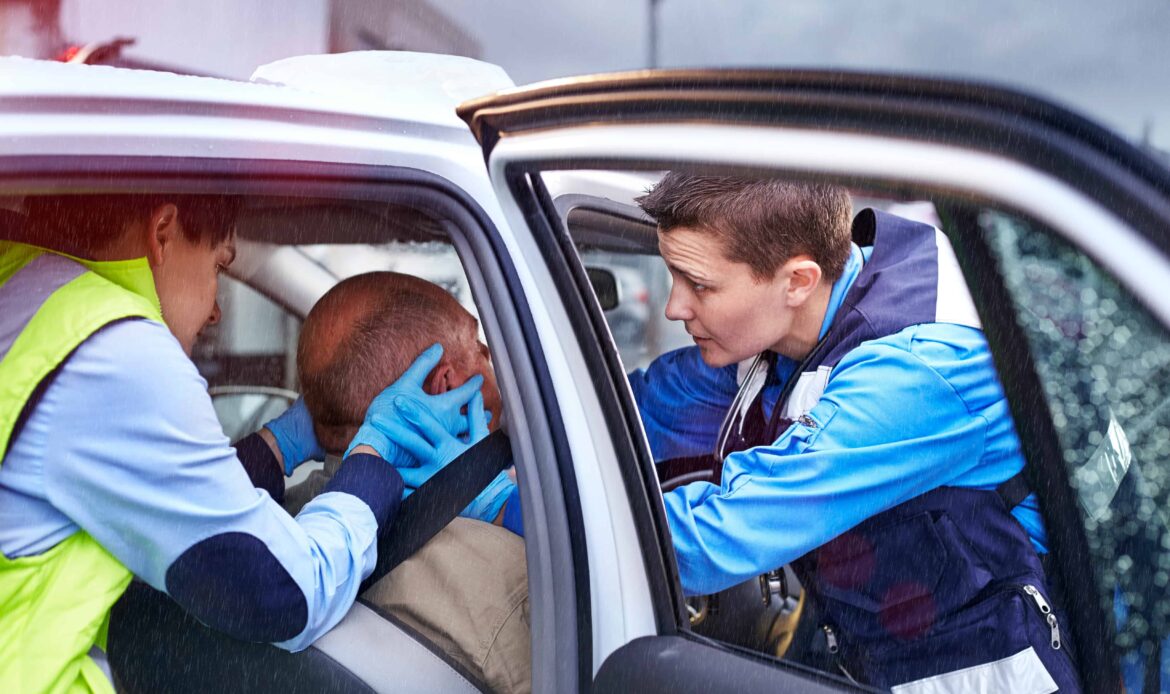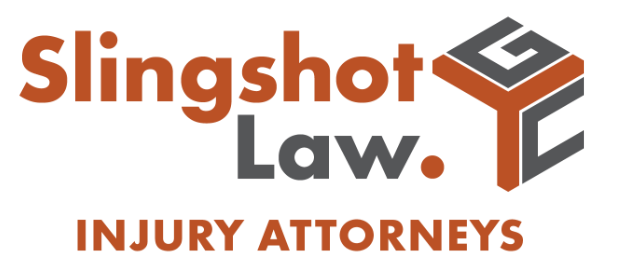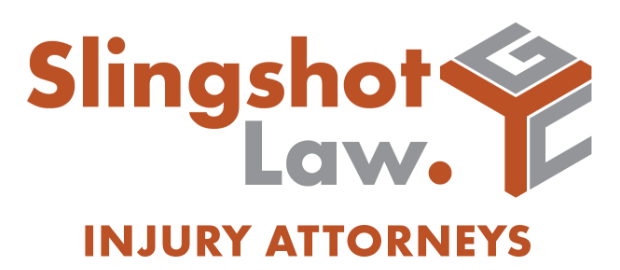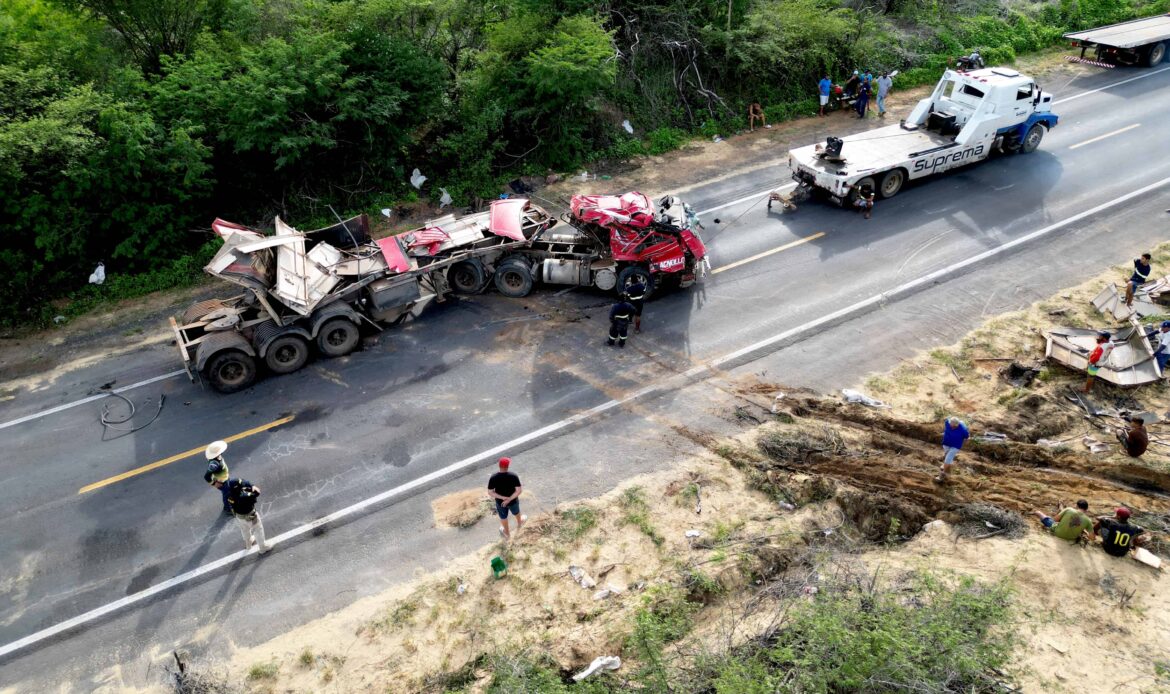A collision with a large commercial truck is a terrifying and life-altering event. The sheer size and weight difference between a passenger car and a fully loaded semi-truck means the consequences are often devastating. If you or a loved one is reeling from such an incident, you’re likely facing a difficult and uncertain road ahead, filled with physical pain, emotional trauma, and mounting medical bills. Understanding the common types of injuries suffered in trucking accidents can help you grasp the long-term challenges you may face and know how to begin the journey toward recovery.
Key Takeaways about Types of Truck Accident Injuries
- The immense weight and force involved in commercial truck collisions often lead to catastrophic and life-changing injuries, far more severe than those in typical car accidents.
- Injuries are not just physical; the emotional and psychological trauma, such as PTSD and anxiety, can be equally debilitating and require significant long-term care.
- Common physical injuries include traumatic brain injuries (TBIs), spinal cord damage, internal organ damage, and severe fractures, often resulting in permanent disability.
- Compensation in a truck accident claim can cover both economic losses like medical bills and lost wages, and non-economic damages like pain and suffering.
- The complexity of truck accident cases, which may involve multiple responsible parties like the driver and the trucking company, underscores the importance of understanding the full extent of one’s injuries.
Why Truck Accident Injuries Are So Severe
It all comes down to basic physics. A standard passenger car weighs around 4,000 pounds. A fully loaded semi-truck can legally weigh up to 80,000 pounds. When these two vehicles collide, the force exerted on the smaller vehicle and its occupants is immense. This isn’t just a fender bender; it’s a catastrophic event that can crumple steel and shatter lives in an instant.
Federal regulations, such as those set by the Federal Motor Carrier Safety Administration (FMCSA), exist to make our roads safer by governing things like how many hours a driver can be on the road and how trucks must be maintained. When these rules are broken due to negligence—carelessness, or a failure to act reasonably—the risk of a devastating accident skyrockets. Whether you are traveling along the heavy traffic on I-35 in Austin or the steep mountain grades along I-70 near Grand Junction, the potential for a serious truck accident is a constant reality.
Common Physical Types of Injuries Suffered in Trucking Accidents
The massive force of impact in a truck collision can cause a wide range of severe physical harm. Truck accident injuries often require extensive medical treatment, long-term rehabilitation, and can permanently alter a person’s ability to work and enjoy life.
Traumatic Brain Injuries (TBIs)
A traumatic brain injury occurs when a sudden jolt or blow to the head disrupts the normal function of the brain. In a truck accident, a person’s head can strike the steering wheel, window, or other parts of the car, or simply be violently whipped back and forth, causing the brain to collide with the inside of the skull. TBIs range from seemingly mild concussions to severe, permanent brain damage.
Symptoms of a TBI are not always obvious and can develop over hours or days. Be aware of signs like:
- Persistent headaches or dizziness
- Memory loss and confusion
- Mood swings, irritability, or depression
- Difficulty concentrating or speaking
- Sensitivity to light and sound
These injuries can have a profound impact on a person’s cognitive abilities, personality, and capacity to live independently, making long-term care a necessity.
Spinal Cord Injuries and Paralysis
The spinal cord is the central bundle of nerves that carries signals from your brain to the rest of your body. When the vertebrae protecting the spinal cord are fractured or crushed in a truck accident, the cord itself can be bruised, cut, or permanently damaged. This can interrupt the flow of nerve signals, resulting in partial or complete paralysis.
Spinal cord injuries are categorized by the area of the spine that is affected and can result in:
- Quadriplegia (or Tetraplegia): Loss of function and sensation in all four limbs and the torso.
- Paraplegia: Loss of function and sensation in the lower half of the body, including the legs.
The consequences are truly life-altering, requiring lifelong medical care, mobility aids like wheelchairs, and significant modifications to a person’s home and lifestyle.
Back and Neck Injuries
Even if the spinal cord itself remains intact, the structures supporting it can sustain serious damage. Whiplash, which is a violent stretching of the neck muscles and ligaments, is common. More severe injuries include herniated or bulging discs, where the soft cushions between your vertebrae are pushed out of place, pressing on nerves and causing intense pain, numbness, or weakness. Fractured vertebrae are also a serious risk and can lead to chronic pain and instability.
Broken Bones and Crush Injuries
The sheer force of a commercial truck can easily crush the frame of a smaller vehicle, leading to devastating fractures and crush injuries for those inside. It’s common for survivors to suffer multiple broken bones, including legs, arms, ribs, and the pelvis. These complex fractures often require surgery, the insertion of plates and screws, and a long, painful recovery process.
Crush injuries are particularly dangerous, as they can damage not only bones but also the underlying muscles, nerves, and blood vessels, sometimes leading to amputation or long-term nerve damage.
Internal Injuries and Organ Damage
One of the most frightening types of injuries suffered in trucking accidents is internal damage, as it is not visible from the outside. The blunt force trauma from the impact can cause internal bleeding, which can be life-threatening if not treated immediately.
Organs like the spleen, liver, and kidneys can be bruised or ruptured. Punctured lungs from broken ribs are another serious and common injury. It’s critical to seek a thorough medical evaluation after any major accident, even if you feel okay, because the signs of internal damage can be dangerously delayed.
Burns and Disfigurement
Truck accidents carry a high risk of fire and explosions, especially if the truck is carrying flammable materials. This can lead to severe burns that cause excruciating pain, permanent scarring, and require multiple skin graft surgeries. Even without a fire, severe “road rash”—a type of friction burn from being dragged across the pavement—can cause deep tissue damage and disfigurement. The physical scars are a constant reminder of the trauma and can lead to significant psychological distress.
The Invisible Wounds: Emotional and Psychological Trauma

The impact of a truck accident extends far beyond the physical injuries. The emotional and psychological toll can be just as debilitating, affecting your ability to work, maintain relationships, and find joy in daily life. It is completely normal to struggle with the mental aftermath of such a terrifying event.
These invisible wounds are very real and deserve to be taken seriously as part of your recovery. You might experience:
- Post-Traumatic Stress Disorder (PTSD): Survivors often experience flashbacks, nightmares, and severe anxiety related to the accident.
- Anxiety and Depression: The stress of recovery, financial worries, and chronic pain can lead to overwhelming feelings of anxiety and hopelessness.
- Fear of Driving (Amaxophobia): Many people develop an intense and paralyzing fear of getting back into a vehicle, which can severely limit their freedom and independence.
Remember, seeking help from a mental health professional is a sign of strength and a vital part of healing. This psychological trauma is a recognized component of your injuries and should be addressed with the same urgency as your physical wounds.
What to Do After a Truck Accident
Once you are home from the hospital and the immediate crisis has passed, the long road to recovery begins. The steps you take during this time are crucial for both your health and protecting your legal rights.
- Prioritize All Follow-Up Medical Care. Your health is the number one priority. Attend every single appointment with your doctors and any specialists they refer you to, such as neurologists or orthopedic surgeons. Follow through with all recommended treatments, including physical therapy and counseling. This not only aids your recovery but also creates an official record of the extent of your injuries.
- Document Everything. Start a journal to track your daily pain levels, symptoms, and limitations. Note how your injuries affect your ability to perform daily tasks like cooking, cleaning, or caring for your family. Keep a detailed file of every medical bill, prescription receipt, and any communication from your employer about missed work.
- Be Cautious with Insurance Adjusters. An adjuster from the trucking company’s insurance provider will likely contact you very soon after the accident. Their job is to minimize the amount their company has to pay. You are not obligated to give a recorded statement. It’s wise to be polite but brief, and avoid discussing fault or the details of your injuries until you’ve had a chance to understand your rights.
- Understand Important Deadlines. Each state has a law called the statute of limitations, which is a strict deadline for filing a personal injury lawsuit. In Texas, the deadline is generally two years from the date of the accident. In Colorado, the statute of limitations for motor vehicle accidents is typically three years. Missing this deadline can mean losing your right to seek compensation forever.
Taking these steps can help you feel more in control during a chaotic time and build a strong foundation for any potential legal claim you may pursue.
How Your Injuries Impact a Claim for Compensation

When you are injured because of someone else’s negligence, the law allows you to seek compensation, often referred to as “damages,” for your losses. The type and severity of your injuries directly influence the value of your claim. The goal is to recover funds that can help make you whole again, at least financially.
Damages are typically broken down into two main categories:
- Economic Damages: These are the tangible, calculable financial losses you have suffered. This includes all past and future medical expenses, lost wages from being unable to work, and loss of future earning capacity if your injuries prevent you from returning to your previous job.
- Non-Economic Damages: These are the intangible losses that are harder to put a price tag on but are just as real. This includes compensation for your physical pain and suffering, emotional distress, mental anguish, disfigurement, and loss of enjoyment of life.
A person with a spinal cord injury requiring a lifetime of care will have a very different claim than someone who suffered a broken arm that will eventually heal. Accurately assessing the full, long-term impact of your injuries is essential to pursuing fair and just compensation.
Trucking Accident Injuries FAQs
Here are answers to some common questions that arise after a serious collision with a commercial truck.
Can I still have a claim if I was partially at fault for the truck accident?
Yes, in many cases. Both Texas and Colorado operate under a “modified comparative fault” rule. This means you can still recover damages as long as you are not found to be 51% or more responsible for the accident. Your potential compensation would be reduced by your percentage of fault.
How does a pre-existing condition affect my injury claim?
Having a pre-existing condition does not prevent you from having a valid claim. If the truck accident aggravated or worsened your prior condition, the responsible party can be held liable for the extent of that new harm. For example, if you had a chronic bad back that became severely debilitating after the crash, you can seek compensation for that aggravation.
What is a “wrongful death” claim in a fatal truck accident?
When a truck accident is fatal, certain surviving family members (like a spouse, children, or parents) may be able to file a wrongful death lawsuit. This type of claim seeks compensation for losses such as lost future income, loss of companionship, and mental anguish suffered by the family due to their loved one’s death.
You Don’t Have to Face Goliath Alone

The journey to recovery after a catastrophic truck accident is a marathon, not a sprint. As you focus on healing, the last thing you need is the stress of battling a massive insurance corporation whose only goal is to protect its bottom line. These companies are Goliaths, armed with teams of adjusters and lawyers. But you have a right to a fair fight. You have a right to hold the responsible parties accountable for the harm they’ve caused.
At Slingshot Law, we stand with those who have been injured and feel overlooked. Our team is dedicated to being the game-changing weapon in your battle, helping guide you through the complex legal process so you can focus on what matters most: getting your life back.
If you’re struggling after a truck accident in Austin, Texas, or Grand Junction, Colorado, contact us today at (866) 647-1311 or through our online form for a free, no-obligation consultation to discuss your case and learn how we can help.


